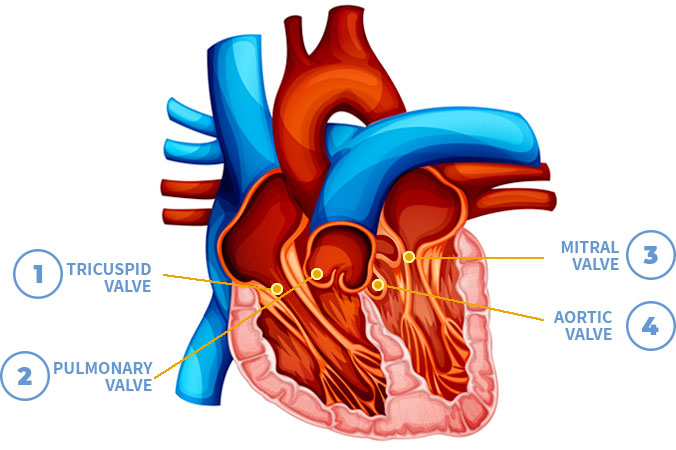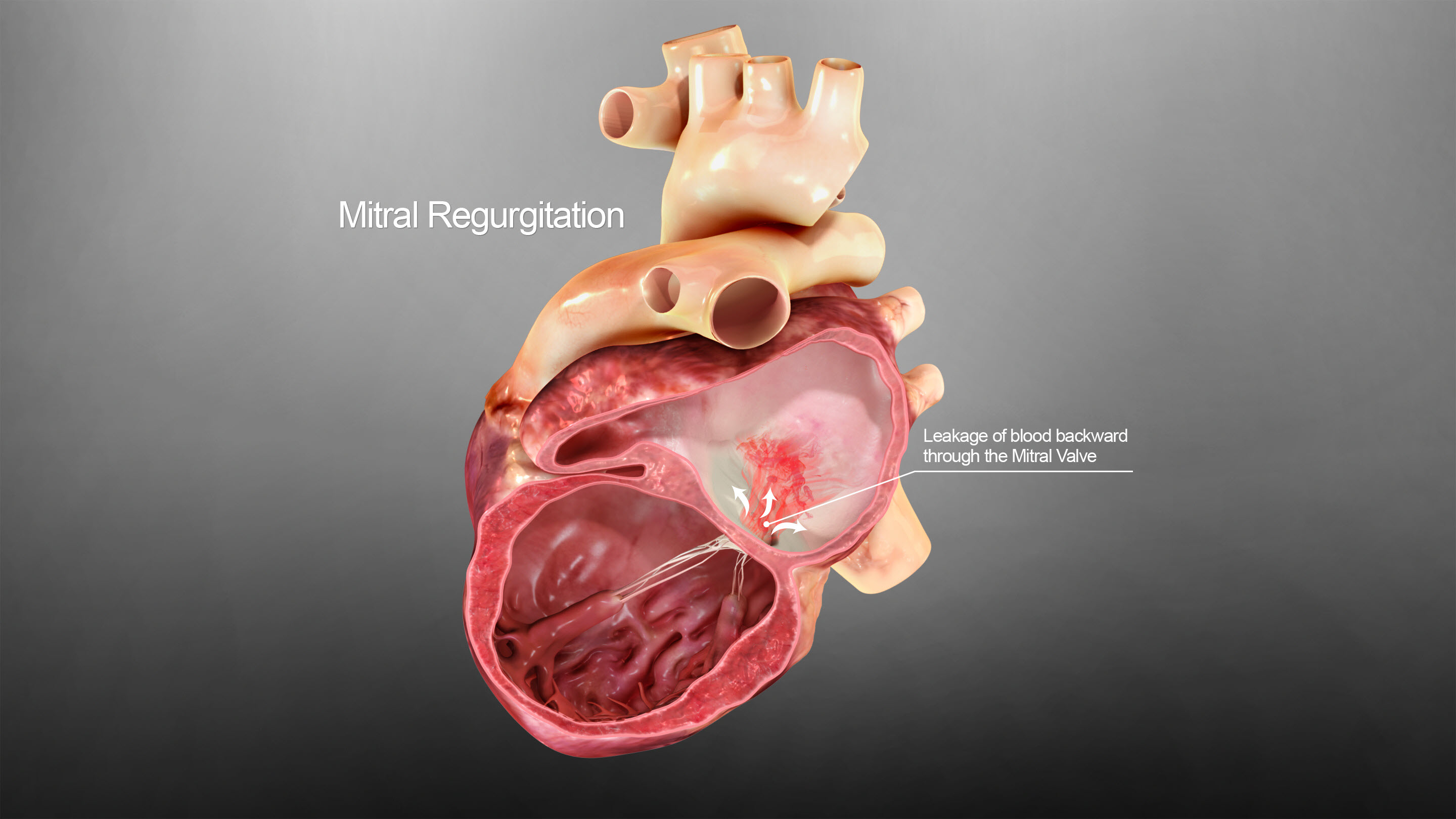Mitral regurgitation
Heart valve disease could lead to
mitral regurgitation
The heart valves regulate blood flow
The heart is only the size of a fist but supplies oxygen to the entire body by pumping, in rhythm, about 100,000 times a day. It has four valves that open and close, regulating the flow of blood in and out of the heart and between its chambers.
- The tricuspid valve – Controls flow of non-oxygenated blood, coming from the body, from the right atrium to the right ventricle.
- The pulmonary valve – Allows the blood that needs oxygen to flow from the right ventricle to the lungs.
- The mitral valve – Regulates the flow of oxygenated blood from the lungs into the left ventricle.
- The aortic valve – Ensures that the oxygen-rich blood exits the left ventricle and flows to the rest of the body.

Heart valve disorders
If you have a disorder in your heart valve, this means that your valve isn’t able to do its job properly. The more common valve disorders include:
If the valve becomes stiff or too narrow, insufficient blood will flow from the atrium into the ventricle. Your heart then has to pump harder to circulate blood to your organ, which could lead to heart failure. Stenotic valves become more common with age and bring dizziness, chest pain, fatigue, palpitations, and shortness of breath.
This is a condition that comes with stretched or leaky valves. Causes include birth defects, heart attacks, rheumatic fever, or high blood pressure.
A leaky valve causes blood to flow back into the atrium, which stretches and strains it. Blood could also flow into the lungs, causing serious pulmonary edema. Symptoms include shortness of breath; heart palpitations; swelling in the ankles, feet or belly; quick weight gain; chest pain; and weakness or dizziness.
Mitral regurgitation is caused by a leak in the heart’s valve
Mitral regurgitation (or mitral insufficiency) occurs when a valve isn’t closing properly, which allows blood to leak backward into the left atrium of the heart. It is the most common kind of heart valve disease today.
In severe cases, the heart may enlarge in order to keep the blood flowing forward, and it might be unable to pump enough blood into the body—and this is referred to as heart failure.
People with mitral regurgitation can have congestion around the heart and lungs, shortness of breath when exercising, and edema (swelling of the legs and feet).
How is mitral regurgitation treated
The goal of treating mitral regurgitation is to prevent or correct serious damage to the heart, delay heart failure, and improve survival rate. Treatment will depend on how severe the case is and whether the circulatory system is still able to maintain enough pressure to get blood to all parts of the body.
Monitoring
If your case is not severe, your cardiologist may ask that you make healthy lifestyle changes, such as gradually increasing exercise and improving your diet. Frequent checkups and testing will allow your cardiologist to ensure your heart’s still functioning at a safe level.
Medications
can be prescribed to relieve symptoms, to maintain heart rhythm, to regulate blood pressure, and to prevent stroke. Medications do not actually repair the mitral valve, though, so they are considered a short-term treatment.
Surgery
The gold standard treatment is open-heart surgery to repair or replace the mitral valve. The replacement can be a biological valve or one made of metal. Open-heart surgery requires the use of a heart-lung machine because your heart must be bypassed during the surgery. Over half of all mitral regurgitation patients have other conditions that make open-heart surgery too risky.
Transcatheter Repair
If conditions are right for less invasive surgery, your hospital stay can be shorter with fewer complications. This is particularly effective for patients with severe mitral regurgitation, patients who are aged, or patients who have co-existing conditions that make open-heart surgery too risky. There are solutions for minimally invasive valve repairs. But we need one for when the valve needs replacing.


